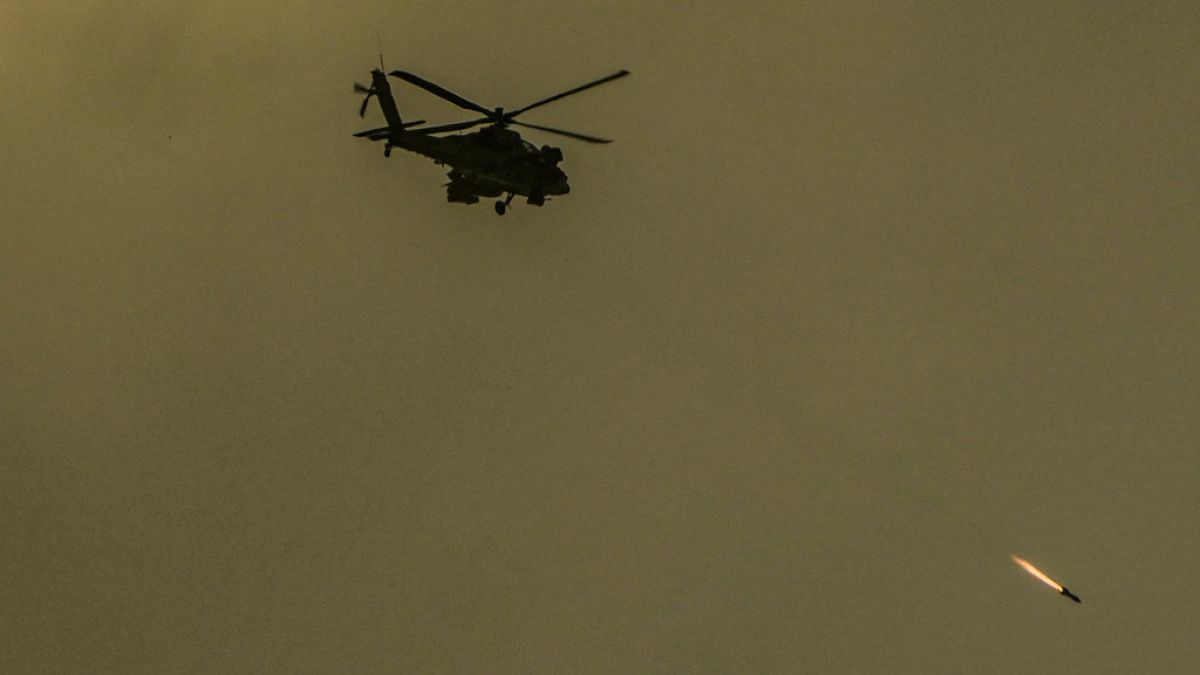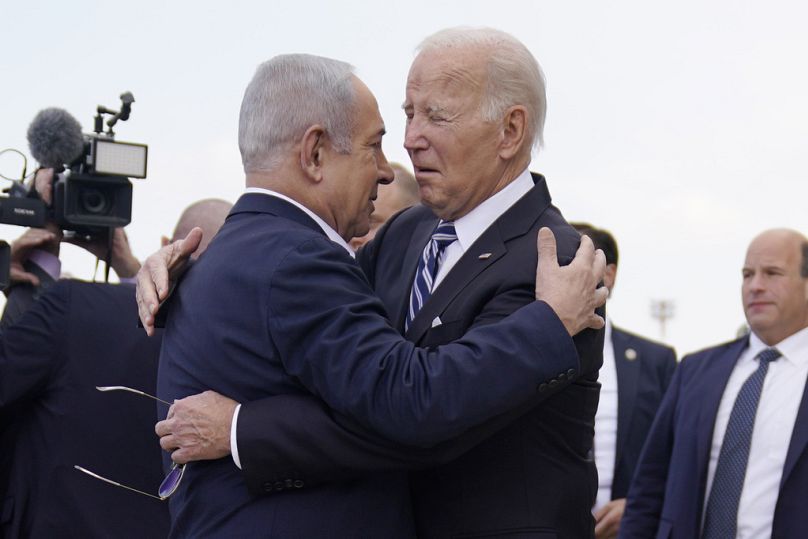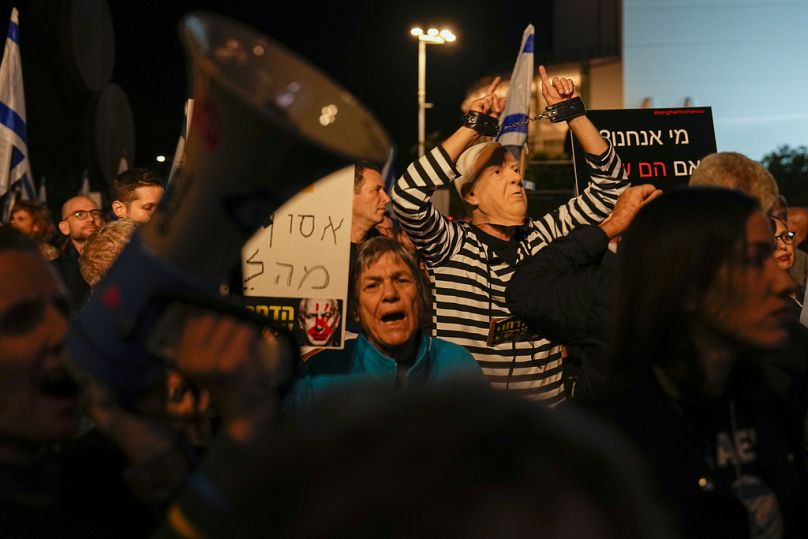Israel's prime minister has again pushed back against international calls for a ceasefire.
Israeli strikes in central Gaza have killed at least 35 people Sunday, hospital officials said, as fighting raged across the enclave.
It comes a day after Benjamin Netanyahu said the war will continue for “many more months," resisting international calls for a ceasefire.
The Israeli prime minister’s refusal to back down has raised fears of a broader regional conflagration.
Israel says it wants to destroy Hamas’ governing and military capabilities in Gaza, from where it launched its attack on southern Israel on 7 October.
The militants killed some 1,200 people and took 240 others hostage after breaking through Israel's extensive border defences, shattering its sense of security.
Israel's unprecedented air and ground offensive has killed more than 21,800 Palestinians and wounded more than 55,000 others, according to the Health Ministry in Hamas-ruled Gaza.
The war has sparked a humanitarian crisis, with a quarter of Gaza residents facing starvation, according to the United Nations.
Israel’s bombardments have levelled vast swaths of the territory, making parts uninhabitable and displacing some 85% of Gaza’s 2.3 million residents.
Israel presses on despite growing opposition
The Israeli military said on Sunday it is continuing to battle militants in Khan Younis, an area where Israel believes Hamas leaders are hiding.
It also claims its forces operating in the urban Shati refugee camp, in northern Gaza, found a bomb in a kindergarten and defused it.
Israel has faced stiff resistance from Hamas since it began its ground offensive in late October, with Hamas continuing to launch rockets toward southern Israel.
The military says some 172 Israeli soldiers have been killed during that time.
Hamas won’t back down either
The magnitude of the destruction in Gaza coupled with the war's length has raised questions about whether Israel can succeed in its goal of dismantling Hamas - and what would come after.
Netanyahu has said Israel must maintain open-ended security control over the Gaza Strip.
At a news conference on Saturday, he said the war would continue for “many more months" and that Israel would assume control of the Gaza side of the border with Egypt.
“(It) must be in our hands, it must be sealed. It’s clear that any other agreement will not guarantee the demilitarisation that we need and require,” Netanyahu said.
Israel says Hamas has smuggled weapons from Egypt - but Egypt is likely to oppose any Israeli military presence there.
Netanyahu has also said he won't allow the internationally-backed Palestinian Authority, which administers some parts of the West Bank, to participate in any future rule over Gaza.
That puts him at odds with US President Joe Biden's administration, which has provided crucial military aid for the offensive.
The US wants a unified Palestinian government to run both Gaza and parts of the Israeli-occupied West Bank as a precursor to eventual statehood.
The last Israeli-Palestinian peace talks broke down over a decade ago and the Israeli government since then has been staunchly opposed to such a Palestinian statehood.
Israeli media have reported that Netanyahu has repeatedly dodged holding meetings with his War Cabinet about the post-war possibilities.
Israel potentially losing faith in Netanyahu
Israelis, who still largely stand behind the war’s goals, are showing signs they are losing patience.
On Saturday night, thousands took part in one of the largest demonstrations against Netanyahu since the war began.
The country, which is sharply divided over the long-serving leader and a judicial overhaul plan he set in motion before the war, has remained mostly united since 7 October.
A separate protest on Saturday called for the release of the estimated 129 remaining hostages held by Hamas. Families of hostages and their supporters have demanded that the government prioritise hostage releases over other war objectives, staging large protests every weekend.
Egypt, one of the mediators between Israel and Hamas, has proposed a multistage plan that would kick off with a swap of hostages for prisoners, accompanied by a temporary cease-fire. A similar deal in November saw Hamas free over 100 hostages and Israel release 240 Palestinian prisoners.
The two sides, though, still appear far from striking a new deal. Both Hamas and the smaller Islamic Jihad militant group say no more hostages will be freed until Israel ends the offensive and withdraws from Gaza.


